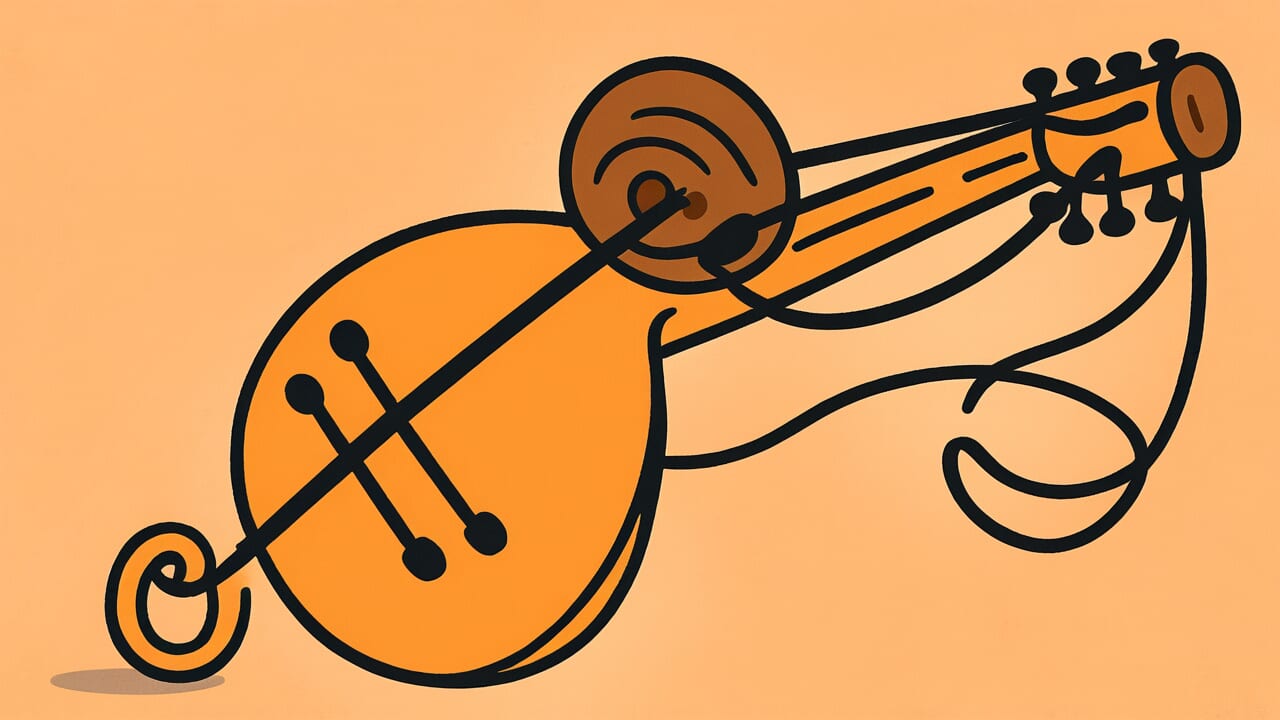How to Read “When the large string is too tight, the small string breaks”
Taigen kyū nareba shōgen tayu
Meaning of “When the large string is too tight, the small string breaks”
This proverb means that excessive force or rapid change will break the weakest parts.
In organizations and groups, when powerful people push too hard or rush reforms, those in weaker positions cannot endure and break down.
This saying is used when leaders try to force things through, or when rushed reforms create chaos on the ground.
It also serves as a reminder to reflect on whether you are pushing yourself too hard and forcing unreasonable demands on others.
In modern times, this proverb becomes increasingly important as society rapidly changes through work style reforms and digitalization.
Even when change itself is necessary, if you misjudge its speed or intensity, the weakest parts will collapse first.
This lesson continues to teach us something vital today.
Origin and Etymology
This proverb likely originated from the adjustment of musical instrument strings.
The prevailing theory traces it to ancient Chinese music theory. It came to Japan through Chinese classical texts.
The large string refers to thick strings, while the small string means thin strings.
When tuning an instrument, if you tighten the thick string too much, that tension affects the entire instrument. The thin string cannot withstand this and snaps.
In string instruments like the koto and biwa, balance among all strings is crucial.
If you adjust just one string to an extreme, the harmony of the entire instrument collapses.
This expression became an established proverb rather than remaining mere technical discussion because it contained deep life lessons.
When those with strong power push too hard, the burden falls on those in weak positions.
By using a familiar tool like a musical instrument as an example, this social structure became understandable to everyone.
The wisdom of ancient people who found the importance of harmony and balance in the art of music is embedded in this proverb.
Usage Examples
- The company rushed to improve performance too quickly, and just like “when the large string is too tight, the small string breaks,” new employees quit one after another
- As a result of pushing reforms top-down, it became a case of “when the large string is too tight, the small string breaks,” and the workplace became exhausted
Universal Wisdom
This proverb has been passed down because it brilliantly captures the universal problem of power imbalance in human society.
In societies where the strong and weak coexist, if the strong act without awareness of their power, the burden always falls on the weak.
This applies not only to power structures but to family relationships, friendships, and all human relationships.
Parents place too many expectations on children. Bosses demand perfection from subordinates.
In such daily situations, we may unknowingly become the “large string” and break someone’s “small string.”
What is interesting is that this proverb does not condemn the large string as evil. It simply states the facts plainly.
There may be situations where tightening the large string is necessary.
However, it teaches that we must not turn away from the cause-and-effect relationship that the small string breaks as a result.
When humans push toward a goal, they often lose sight of their impact on surroundings.
Believing too strongly in their own righteousness, they forget others’ limits.
Our ancestors expressed this human tendency through the beautiful metaphor of instrument strings, continuing to convey the importance of harmony to us.
When AI Hears This
The phenomenon where tightening the thick string of a biwa causes the thin string to break is a perfect model of what system theory calls “cascade failure.”
Cascade failure is when one element exceeds its limit, and that impact destroys weak parts in a chain reaction.
What is interesting is that the starting point of destruction is “the strongest element.”
The same thing happened in the power system after the 2011 Great East Japan Earthquake.
When large consumers used electricity all at once, the load on the entire transmission network increased. The most vulnerable substations stopped first, in order.
In other words, when the most capable part of a system operates at full power, the weakest part breaks first.
This can be called the “paradox of strength.”
In engineering, there is a principle that “system strength is determined by its weakest part.”
But this proverb goes further. The more you strengthen the strongest part, the more load increases on the weakest part, potentially hastening the collapse of the entire system.
Even in modern server systems, when a high-performance main server processes massive requests, old peripheral devices and network equipment fail from overload.
The biwa as an instrument was teaching material that uses sound to demonstrate the essence of complex systems: the “difference in durability” between parts makes the entire system fragile.
Lessons for Today
What this proverb teaches modern people is the weight of responsibility for those with power.
When you try to change something or reform something, you need to consider where that force is directed and who it affects.
Especially in modern society, each of us has the potential to become a “large string” in some form.
As a boss at work, as a parent at home, or simply as an elder, you may be unknowingly putting pressure on someone.
What matters is not giving up on change or growth.
Rather, it is having the wisdom to adjust the pace and intensity of change.
As another saying goes, “more haste, less speed.”
Sometimes stepping back to view the whole picture and proceeding at a speed the weakest part can endure is ultimately the fastest and most certain path to your goal.
Is there anyone around you who is pushing too hard? Are you yourself about to break someone’s “small string?”
Not forgetting to ask these questions will be the first step toward harmonious progress.



Comments